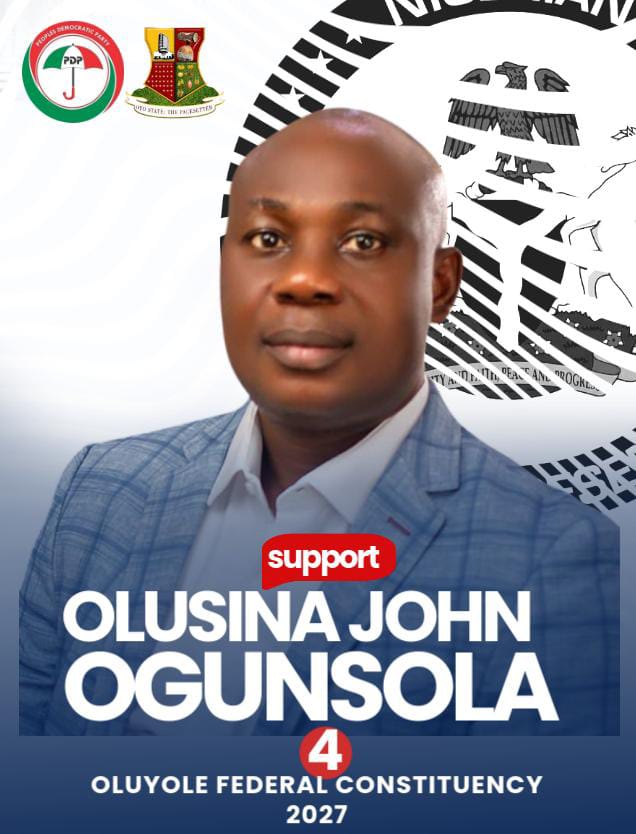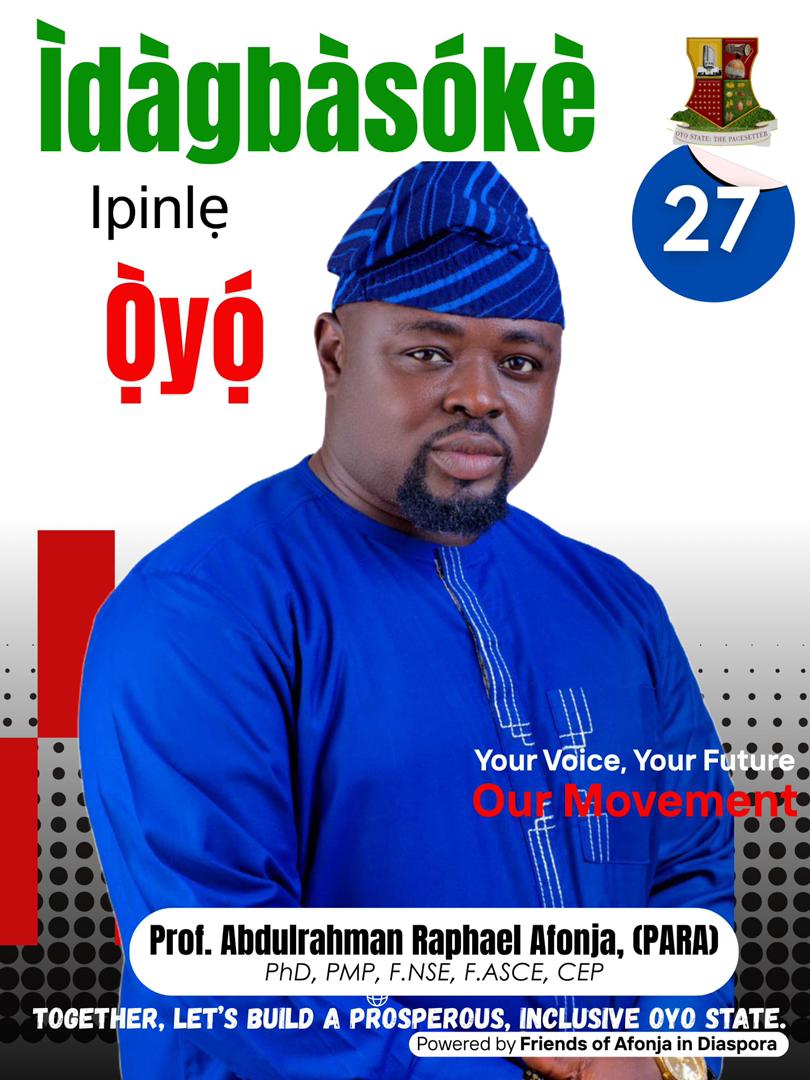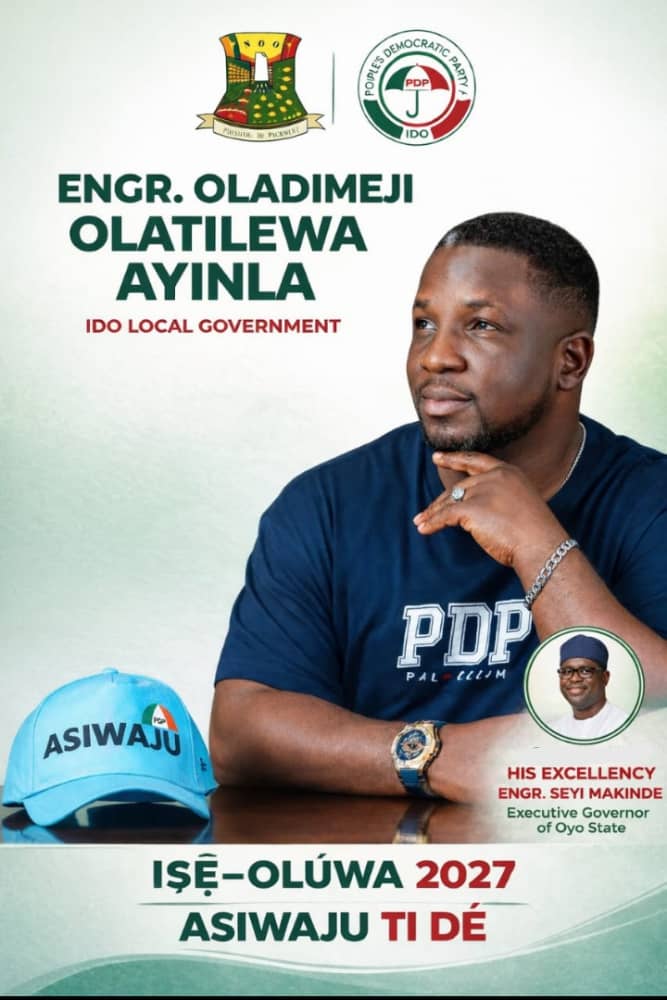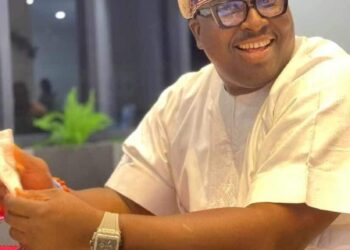Yemisi Victoria Adebagbo is a statistician, an actuarial scientist, a public administrator, and the assistant registrar (academic unit) of the College of Medicine, University of Ibadan. In this interview by KINGSLEY ALUMONA, she speaks about her work, university administration, the country she would love to live in, among others.

You started your career as a statistician and actuarial scientist. How would you describe that early phase of your career, and how did it prepare you for your subsequent careers?
The early stage of my career as a statistician and actuarial scientist gave me a strong foundation for my role as a university administrator in several ways. Statistical models help evaluate risks and forecast trends. Operating and running a university entails analysing admission data, faculty performance, student performance, and outcomes, as well as financial projections and many more.

My knowledge of statistics ensures that policies and strategies are backed by evidence-based projections and not intuition. My knowledge of statistics and actuarial science has also helped me with forecasting financial needs based on planning, identifying courses with high entrance and failure rates for curriculum adjustments, ensuring proper utilisation of the faculty-to-student ratio, and managing institutional risks such as accreditation and admission fluctuations.


Statisticians must explain their findings to the end-users of the policies. My expertise in the field has helped me to communicate policies and strategies to all stakeholders of the university. The analytical, strategic, and problem-solving skills that I have garnered in the course of the study have also helped me to face the challenges in my administrative role. Being a statistician will develop your versatility, problem-solving skills, critical mind, technical proficiency, communication skills, and many more. All these are the skills needed to be a sound administrator.
You have a bachelor’s degree in Statistics and a master’s degree in Actuarial Science. Why did you not go for a PhD? If you were to go for a PhD, which course would it be and why?

I didn’t pursue a PhD immediately because I was not ready to be an academic. My younger self was more inclined to gain real-world experience and solve problems in challenging environments.

If I were to go for a PhD, it would be in the pursuit of Biostatistics (Public Health). I find Biostatistics fascinating because it applies statistical methods to biological, medical, and health sciences. My transfer to the College of Medicine, University of Ibadan, has further strengthened my interest in that field of statistics. I believe that Biostatistics would enable me to make direct contributions to medical research, public health and disease prevention. Now, I’m considering acquiring a master’s in Biostatistics (not a PhD) to integrate into my delivery in my current role in the College of Medicine
Was the university administration job something you really wanted, or you landed it by chance? How would you describe your early years as a university administrator?
When I joined the University, I was unaware of the various career paths available. My first assignment was at the Postgraduate College, University of Ibadan, and my boss at the time made me desire this career path. She was an administrator par excellence, offering the right leadership and mentoring with a good disposition to work. She was firm but humane. Admiring her, gradually turned to desire for a professional career as an administrator. I was quite certain it was what I wanted to do when the opportunity eventually presented itself.
The early stage of my career was challenging and educational. This is understandable as I was coming from a background where soft skills were not the primary knowledge transferred. Soft skills are essential in surviving and excelling in any role, more so in a customer-facing role that I was assigned. I had to improve very quickly on taking accurate minutes of lots of meetings, writing reports for various and multiple committees and balancing human dynamics. I took advantage of peer reviews from colleagues and was never shy to ask senior colleagues questions. A very senior colleague once told me, “Yemisi, it is better to ask questions than to make mistakes. When it is properly done, the acknowledgements and recommendations come to you.”
Also, your profile states that you are experienced in student-parent management. How do you leverage this experience in your job at the University of Ibadan or any other place where the experience is needed?
I had my first experience of student-parent management in my role as the information officer at the Postgraduate College of the University of Ibadan. The customer-facing role ensured that I interacted with people, students, parents, researchers and the general public. I interacted with students from diverse backgrounds seeking information on how to navigate the postgraduate online platforms. I learnt patience and honed my listening skills at all costs. I also became more sensitive to diversity.
Parents’ concerns help in developing student-centred policies that address the academic, financial, and mental health challenges of their wards. As the Information Officer, I was naturally a first-line receiver of such concerns. Timely and quality communication is crucial. Delivering on the important attributes of communication ― timeliness, relevance, and accuracy— is essential in managing students and parents.
Bureaucracy and lip service are usually associated with the non-academic administration of public tertiary education institutions like UI. How often do you encounter these challenges, and how do you manage them?
The university is a thorough institution that ensures that rules and regulations are strictly adhered to. The processes may appear to be bureaucratic, but the decisions taken are often error-free. The system employs double-checking. Decision making is deliberate, intentional, inclusive, and premised on regulations. This is usually encountered in all spheres of administration. However, with the advent of information technology and the institution leveraging on it, bureaucracy has been minimised by the institution.
As an administrator, I must ensure accountability and follow up on decisions taken at meetings. Effective communication of all decisions to relevant stakeholders minimises human errors. Empowering departments and units has also encouraged them to make routine decisions independently. A service-oriented mindset has been created where administrators are not only gatekeepers of the rules and regulations of the university but also facilitators or enablers of good educational services.
If you were to recommend three strategic solutions or programmes that would transform the modus operandi of UI’s College of Medicine in a way that would make its operations seamless and its development faster, what would they be?
I would leverage technology by fully automating record-keeping and ensuring that all requests and approvals are online-based to reduce delays. AI-driven administration should also be adopted to track performance and allow a proactive decision process. Public-private partnerships will also increase and improve infrastructure development and sustainable funding for faculty and research.
Pension and gratuity are important for civil servants like you. Fortunately, your MSc thesis is on pension scheme management. How do you think the major findings from your MSc thesis could help the government and your university ensure a better pension for you and your colleagues after retirement?
Pension administration is contributory, a part from the government and the remaining from the employee. Findings from my MSc thesis noted that the government should adopt more diversified investment portfolios to ensure better returns, stability, and sustainability.
Real-time tracking of pension contributions using technology can reduce errors and delays in remittance, ensuring retirees receive their benefits on time. Implementing regular monitoring and auditing of pension scheme administrators to reduce risks. Increasing transparency and employee engagement. Clear communication channels should be adopted to inform employees about their pension status and expected payout. Finally, offering workshops on the pension process can help employees understand pension plans and contribute to better retirement planning.
If you were to work or live in a foreign country, where would that be?
The United States of America or the United Kingdom.
Tell us the solutions, services, or impact you would be offering this country and how it would further help build your career.
With my knowledge and experience in university administration, and also my experience in statistics and actuarial science, I am positioned to contribute significantly to higher education management, public sector reforms, and institutional development in any country I find myself.
My goal is to provide data-driven solutions that improve efficiency, sustainability, and policy implementation in relevant sectors. I would like to contribute to national development, building a career as a thought leader in these fields and bridging the gap between management and students. Analysing drop-out rates, resource allocation to all faculties and units, and helping the university statutory committees to make data-backed decisions, which, in the long run, positions the university to excellence and a better ranking.
As a university administrator, mentoring immigrants to navigate academic and career challenges would not be difficult because I have garnered such experiences over the years.
Where do you see yourself and your career in five years? And how do your family and husband help in this regard?
In five years, I envision myself advancing to higher leadership in university administration while integrating biostatistics into my role. With my administrative and statistical background, I envision consulting for governments and education ministries on higher education policies. If the opportunity arises, having a non-governmental organisation (NGO) that focuses on student development and management, exploring opportunities in research, consulting and bridging academia with industry or public health sector
Working as a university administrator requires strategic thinking, decision-making, and resilience. Strong support from my spouse and family has been a key factor in my career progression. I am married to a friend and a mentor who has helped in my career progression. He has played a vital role emotionally, morally, and financially in ensuring that I have the right frame of mind to discharge all given responsibilities. He has encouraged networking and provided insights and guidance.
My extended family, especially my mother, assisted with childcare and the home front. These, I believe, would be replicated if given higher tasks.


You can get every of our news as soon as they drop on WhatsApp ...To get all news updates, Join our WhatsApp Group (Click Here)

















